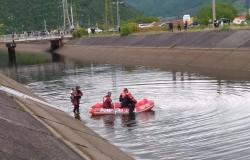
For eight hours (from 9:00 a.m. to 5:00 p.m.) on March 24, the stock market price of electricity in Bulgaria was zero leva. This is happening for the first time this year and is one of the few cases where the power is worthless for so many hours. The situation is similar in almost all of Europe, the reason being the rest day – Sunday, the good weather and the many new solar capacities that are already in operation, according to Rador Radio Romania.
However, the zero price effect will not be directly reflected in the costs of many companies. To use the free electricity, companies must work on Sundays and have so-called hourly metering, as well as have chosen to pay for energy by the hour. However, most companies do not do so, choosing instead to pay the average exchange price for baseload per month, which is currently around BGN 130/MWh – the lowest since May 2021 and 39% below the levels of March last year.
For producers, however, zero energy pricing is disastrous – in reality, they will have no income from the electricity produced, but will have costs for transport and access, as well as balancing. And this applies not only to the capacities for Renewable Energy Sources, but to all those working during these hours, including the Kozlodui Nuclear Power Plant.
It is expected that in the days of spring and autumn we will see even negative tariffs, which can be avoided if the model of energy price formation is changed. This is expected to happen in early April with the change in Energy and Water Regulatory Commission regulations.
What happened
The National Assembly approved with the votes of deputies from all parliamentary groups, except for the coalition Continue the Change – Democratic Bulgaria (PP-DB), the decision by which the Bulgarian Minister of Finance, Asen Vasilev, undertakes to undertake “the necessary actions to cover the operational deficit in the fund” Security of the energy system” until March 31 this year”. Or within the next week. Interestingly, the timing of the vote coincides with the breakdown of negotiations between GERB and PP-DB for a new government.
If you missed it
State gas operator Bulgartransgaz will announce a public tender worth 586.7 million leva excluding VAT to expand the national network in connection with the so-called Vertical Gas Corridor. The megaproject is an initiative of gas transport operators from Bulgaria, Greece, Romania, Hungary, Slovakia, Ukraine and Moldova, and its purpose is to ensure a sufficiently large capacity for gas transport along the south-north axis. The reason – at the end of this year, the transfer of Russian gas through Ukraine will stop completely, and this will directly affect countries such as Slovakia, Hungary and Austria.
Furthermore
The Marița – Iztok II thermal power plant may close ahead of schedule due to excessive pollution. The court in Stara Zagora revoked the power plant’s excessive pollution authorization, but the decision is not final. The Ministry of Energy will again seek the roadmap for Turkish Stream. The inspection was entrusted to the ministry’s inspectorate, but it is unlikely to lead to any results.
Trading electricity after 1 July – what are the risks and opportunities.
Energy traders fear market turbulence, but according to the Ministry of Energy, no problems are expected. Moritz Seiler: Germany will definitely not go back to coal. “In people’s eyes, the closing of the coal mines is like a second transition from socialism to a market economy,” says the head of the economic department of the German Embassy in Sofia.
Climate
Why weather forecasts are already extremely important. The role of forecasting, scientists and the relationship to policy were among the topics of the first National Scientific Conference on the Environment, organized by the National Institute of Meteorology and Hydrology.
Seasons are changing all over the world and in Bulgaria. Summer is 22% longer at the expense of a shortening of the other seasons in the temperate zones of the Northern Hemisphere.
How artificial intelligence can ‘mess up’ weather forecasting. One of the modern challenges turns out to be the extraordinary variety of models for a weather forecast.
Source: KAPITAL / Rador Radio Romania / Translation: Mirela Petrescu
Tags: hours price energy Bulgaria leva Free electricity day happened
-




